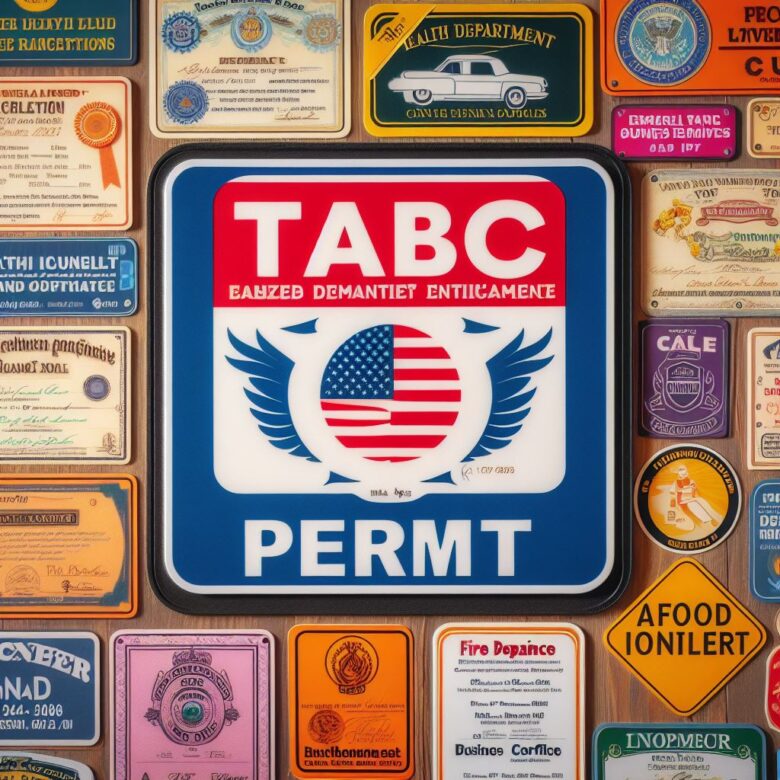Introduction to TABC Permits
For any Texas-based business looking to delve into the sale, distribution, or service of alcoholic beverages, acquiring a TABC (Texas Alcoholic Beverage Commission) permit is a fundamental step not to be overlooked. A TABC permit is a legal pass for businesses to engage in alcohol-related transactions while adhering to the state’s strict regulations and guidelines. Not only does it pave the way for legal operations, but it also sets the tone for responsible alcohol service in line with community standards.
Understanding the nuances of various permits and their obligations is crucial for businesses to choose appropriately and operate within the law. With the appropriate TABC authorization, an establishment may avoid significant legal and financial repercussions.
The Legal Requirements for Obtaining a TABC Permit
Securing a TABC permit involves meeting several legal criteria that can vary based on the specific license in question. Generally, businesses must provide proof of establishment location, ownership credentials, and compliance with zoning laws. Additionally, applicants often undergo a background check to ensure there are no violations that could impede their ability to manage the sale of alcohol responsibly.
The accuracy and completeness of the submitted documentation can significantly swivel the speed and outcome of the application process, highlighting the necessity of careful preparation and understanding of the requirements.
The Business Benefits of TABC Compliance
Holding a valid TABC permit is equivalent to more than just legal operation; it is a testament to the business’s dedication to lawful practice and community responsibility. Compliance with TABC regulations not only prevents costly fines and legal issues but also cements the business’s reputation as an establishment that values the safety and well-being of its patrons.
Furthermore, remaining in good standing with the TABC can lead to smoother interactions with suppliers, vendors, and local authorities, opening doors to unique business opportunities and collaborative ventures.
The application process for a TABC permit requires diligence and attention to detail. From compiling the necessary documents to submitting the application and undergoing inspections, each step must be approached precisely and clearly. Anticipating potential questions or concerns from the TABC and addressing them proactively can significantly reduce the risk of delays in the permit-granting process.
For newcomers to the alcohol sales domain, it’s advisable to conduct thorough research or seek guidance from industry experts to navigate this multi-faceted process. Ensuring all requirements are met can distinguish between prompt approval and a protracted application journey.
Maintaining Your TABC Permit: Renewals and Records
Procurement of a TABC permit is only the beginning of ongoing compliance. Businesses must remain vigilant about renewal deadlines and record-keeping to ensure uninterrupted operations. Renewal procedures often resemble the initial application process, requiring up-to-date documentation and adherence to any new regulations enacted since the original permit was granted.
A meticulous approach to maintaining records and tracking changes in alcohol laws is indispensable for the seamless continuity of business licensing. It can avert the ramifications of oversight or non-compliance.
Understanding TABC Violations and Penalties
Being familiar with TABC regulations and understanding the consequences of violations is essential. Penalties for non-compliance can range from monetary fines to suspension or revocation of the TABC permit, depending on the gravity of the infraction. Businesses may face criminal charges in the most egregious cases, resulting in even more severe repercussions.
Businesses should strive to stay within the confines of their permits and train employees on the importance of doing so, thereby minimizing the risk of violations and promoting a culture of compliance.
How a TABC Permit Enhances Customer Trust and Business Reputation
The value of a TABC permit extends beyond its core legal function; it embodies the trust customers place in an establishment. Patrons are increasingly conscientious about supporting transparent businesses that uphold regulatory standards. A valid permit signals to customers that the company is legitimate and committed to following laws designed to protect them.
Additionally, a solid track record of TABC compliance can enhance the business reputation within the community and industry, serving as a competitive edge and often dictating the loyalty and satisfaction of the customer base.
Tips for Smooth TABC Permit Acquisition and Compliance
Businesses can adopt several best practices to streamline the TABC permit acquisition and ensure ongoing compliance. These include staying informed of all TABC updates, conducting regular staff training on alcohol laws, preparing for and scheduling renewals well in advance, and engaging with legal advisors specializing in TABC regulations.
Embracing a proactive posture towards all aspects of alcohol licensing, from the initial application to daily operations, can simplify the complexity of compliance and foster a culture of excellence within the business.
Staying Informed About TABC Laws and Updates
As with any area of legal compliance, TABC regulations are subject to change. It is incumbent upon business owners to stay informed of any updates or amendments to ensure they remain compliant. Subscribing to TABC newsletters, attending relevant seminars, and building a network of industry peers are all strategies that can keep a business in pace with evolving laws and practices.
Ultimately, the businesses that monitor regulatory changes are the ones best poised to maneuver through the complexities of alcohol licensing and maintain their stance as reputable, trusted establishments in the eyes of their customers and the law.



